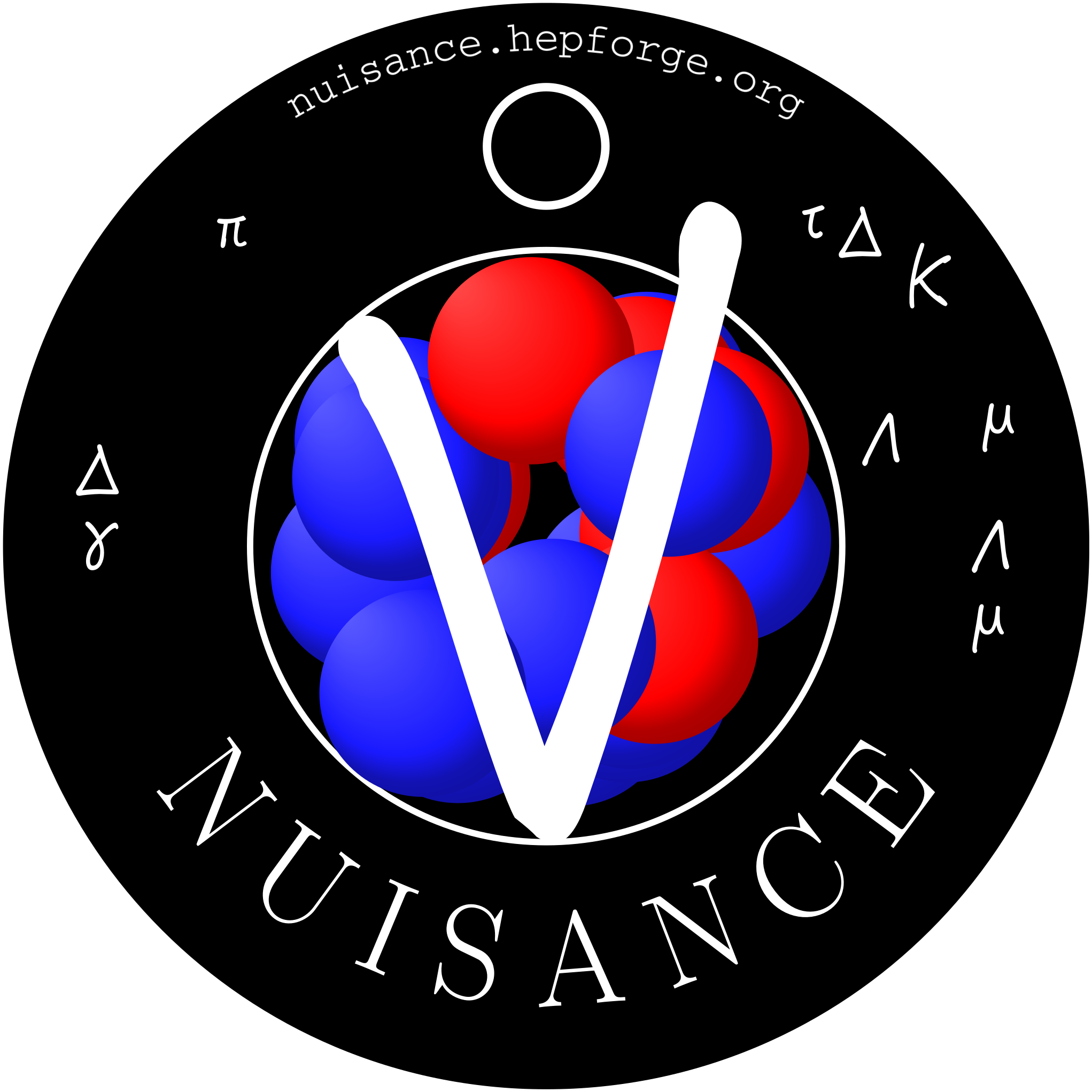close
Warning:
Can't synchronize with repository "(default)" ("(default)" is not readable or not a Git repository.). Look in the Trac log for more information.
- Timestamp:
-
Oct 27, 2016, 11:12:47 AM (9 years ago)
- Author:
-
Clarence Wret
- Comment:
-
--
Legend:
- Unmodified
- Added
- Removed
- Modified
-
|
v52
|
v53
|
|
| 7 | 7 | '''Comments:''' some experiments determined fluxes solely by simulating the beamline and target interaction; others added muon monitors to provide additional flux information; others fitted selected events (often CCQE) and then used that to go to a flux, sometimes without providing information on how accurate the simulation was. In the best cases, all these methods are combined and compared and the differences is an estimate of the flux error. This was not always the case though and the neutrino fluxes should always be taken with a pinch of salt. |
| 8 | 8 | |
| 9 | | '''Beware of experiments using only CCQE events to estimate the neutrino flux''' In correcting the CC1pi+ cross-section by using the CC1pi+/CCQE ratio by multiplying it by the CCQE cross-section, Wilkinson and Rodrigues found that the BNL total cross-section correction was large (arxiv:1411.4482v1) compared to ANL. BNL used a fit to CCQE events to estimate their flux, which assumes a understood CCQE interaction model and an understanding of deuterium effects. |
| | 9 | '''Beware of experiments using only CCQE events to estimate the neutrino flux:''' In attempting to resolve the CC1pi+1p cross-section discrepancy between ANL and BNL, Wilkinson and Rodrigues (arxiv:1411.4482v1) corrected the CC1pi+ cross-section by using the CC1pi+/CCQE ratio and multiplying it by the CCQE cross-section in GENIE. The CC1pi+/CCQE ratio should cancel most of the flux uncertainties, and so provides an estimate of how accurate the flux estimate was. Note the CC1pi+/CCQE ratio agrees well between ANL and BNL. W&R found that the BNL total cross-section correction was large compared to ANL. (I some days assert this is because) BNL used a MA_CCQE fit to CCQE events to estimate their flux, which assumes an understood CCQE interaction model and an understanding of deuterium effects. |
| 10 | 10 | |
| 11 | 11 | |
